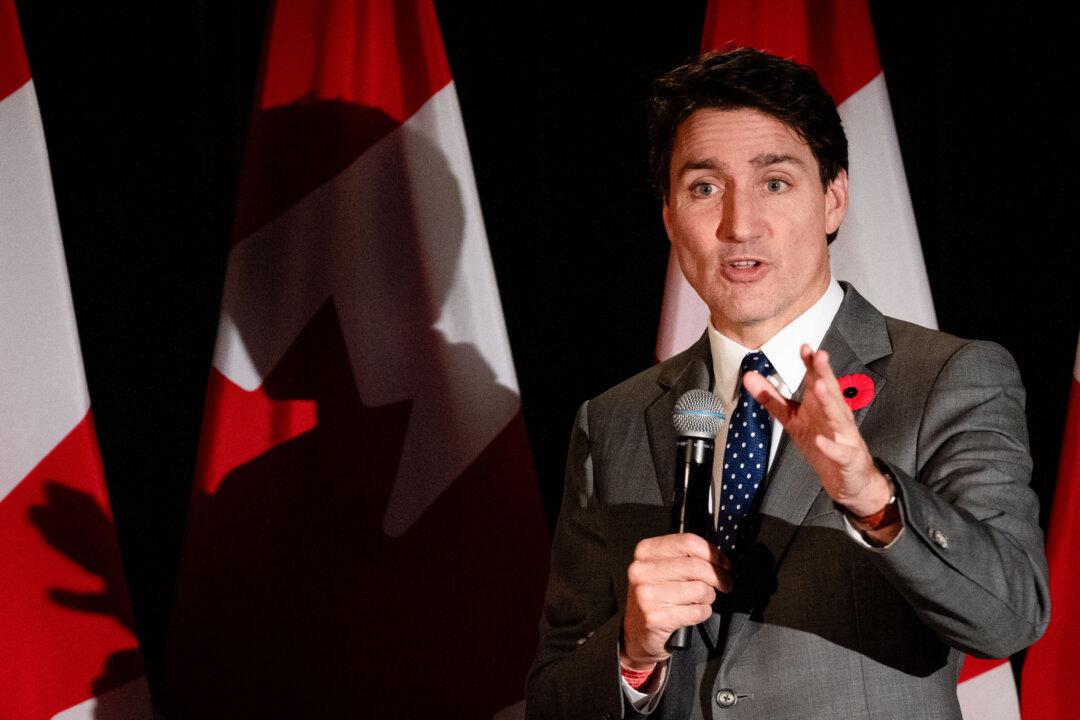Prime Minister Justin Trudeau says tariffs imposed by Washington on Canadian goods will backfire and “inevitably hurt American workers.”
“The interconnectedness between the supply chains in Canada and the United States, the reliableness of Canada as a partner to so many and so much of the American economy, means that tariffs or thickening of the border between Canada and the U.S. will inevitably hurt American workers, American jobs as well,” Trudeau said at a press conference in Vancouver on Nov. 8.





